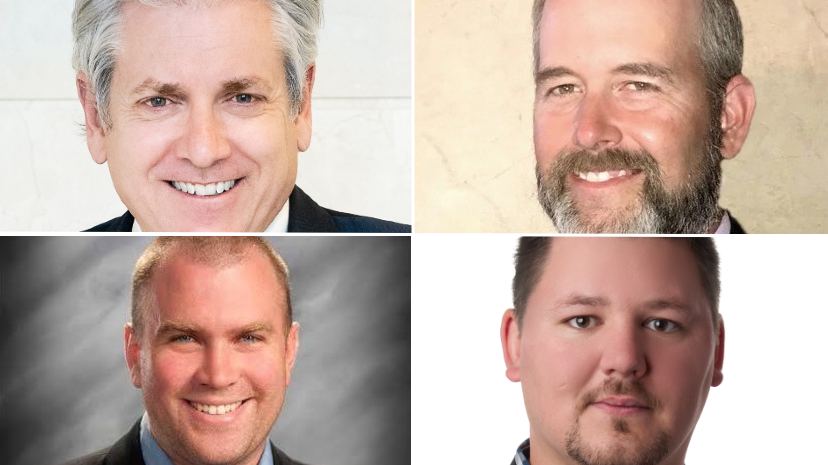TimminsToday asked each of the federal candidates in Timmins-James Bay a series of six questions via email. The following responses were submitted by the candidates and/or their campaigns. The answers have not been checked for accuracy; they represent the candidate’s platforms and opinions. External links have been removed.
Visit timminstoday.ca/canadavotes2021 for more coverage of the federal election. Voting day is Sept. 20, with advance polls running Sept. 10-14.
*****
Q: We are a rich country in many ways, but many of our First Nations reserves still don’t have clean drinking water. The tragedy of residential schools has ripped open the hurt and trauma many of our Indigenous families have felt for generations. Many of the Truth and Reconciliation Commission recommendations remain unheeded. How would you address these issues?
Charlie Angus, NDP: When Justin Trudeau promised to end the scandal of bad water on reserves, Canadians believed him. It was one of the key reasons he won 2015 election. He broke that promise.
I have spent the last number of years working with First Nation communities who have been abandoned by the government’s indifference. They suffer from chronic underfunding, bad planning and a lack of political will. It is unconscionable that Canada, as one of the richest countries in the world refuses to address the fact that many communities have no access to clean drinking water.
Justin Trudeau failed because his government was focused on the numbers game of bringing down the number of boiled water advisories without addressing the root problems. A quick fix at the water plant will not offset the systemic problems such as aging pipes, poor water quality, inadequate plant construction.
The New Democrats will take a holistic approach in each community by addressing their unique issues. This will mean identifying a clean water source, ensuring the plants are built to high standards, investing in training with proper capital and maintenance budgets.
New Democrats will get the job done because we have been on the ground working with the people.
Steve Black, Liberal: Clean drinking water for a community in Canada in 2021 should not be a question. We need to finish the work that we have started. Since taking over from the Conservative government, the Liberal government has invested over $4 billion dollars in 535 water infrastructure projects including 99 new plants and 436 upgrades. We have lifted 109 long-term water advisories and prevented 188 short-term drinking water advisories from becoming long-term advisories. However, the number of communities without access to clean drinking water should be zero. There is more work to do. In every community with a long-term drinking water advisory remaining, there is a project team and action plan in place to resolve it.
Aside from clean drinking water, there is an abundance of work that needs to progress in the spirit of reconciliation. This requires far more than a 200-word answer so I would encourage readers to see chapter 6 of our platform titled Moving Forward on Reconciliation with Indigenous Peoples. We must do better, we must act now and we must walk the path of truth and reconciliation together. This involves respecting treaty rights, and improving the quality of services available for everyone.
Morgan Ellerton, Conservative: Along with many Canadians and particularly those in Timmins-James Bay, I am deeply appalled that in 2021 we have friends that do not have clean drinking water. This is an issue that I will tackle beginning day-one, I will work with stakeholders toward an end to this travesty.
I will listen to Indigenous leaders and Elders on how best to continue a Conservative commitment to Reconciliation with Canada’s Indigenous Peoples. I will work to prove that commitment by delivering on; a housing plan "For Indigenous, By Indigenous" strategy. Conservatives are committed to putting a stop to federal paternalism and instead partnering with Indigenous communities and empowering Indigenous peoples with the autonomy to meet their housing needs. I will work with First Nations and other Indigenous groups to ensure they are partners in prosperity and the development of natural resources by creating a Canadian Indigenous Enterprise Corporation.
I support innovative approaches to the crises of mental health and addiction, such as land-based treatment programs developed and managed by Indigenous communities as part of a plan to deliver culturally appropriate addictions treatment and prevention services in First Nations communities.
Stephen MacLeod, PPC: The Indigenous issue is very complex. Some communities are prosperous while others are much poorer than the Canadian average. Many suffer from acute social problems like crime, domestic violence, substance abuse and suicide. Many don't even have basic services that we take for granted like clean water. Not to mention the atrocities of the residential schools that our past government committed. We cannot rewrite the past but only seek to find the best way to live together in the future. This relationship must be built on respect for each other and one of the ways we aim to do that is by finding options to replace the Indian Act which keeps these communities in a state of dependency and allows the government to control most aspects of their lives. We want to respect our constitution and treaties give them back their freedoms, treat them with fairness and ensure programs are better targeted to benefit their population in particular, the communities that have the greatest needs.


